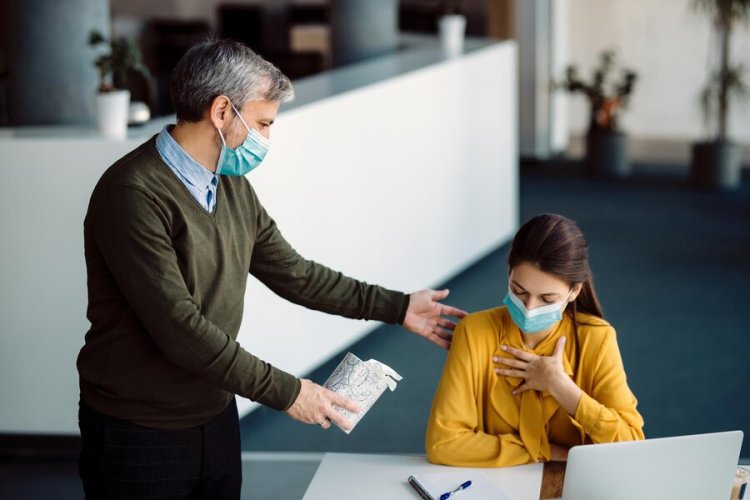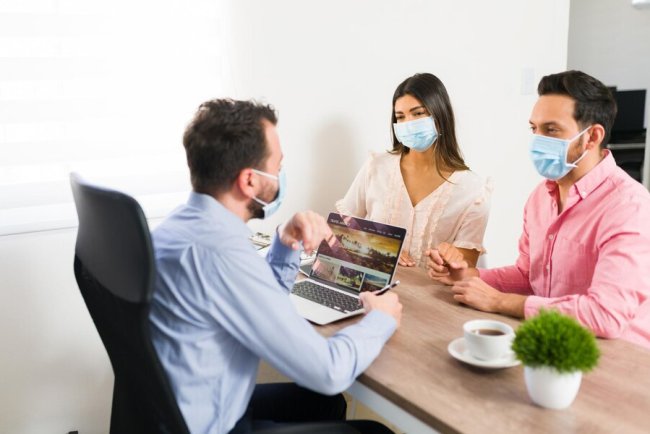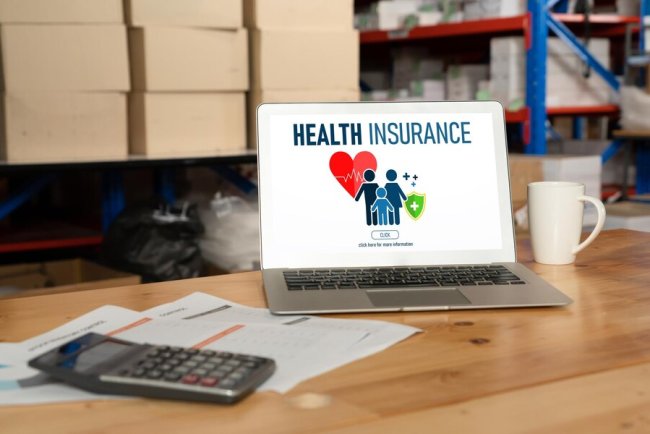Be a good patient: tips to avoid repeat hospital ER visits
Avoid repeat ER visits by following up on care, managing chronic conditions, adopting healthy habits, and staying informed. Build a support system and create an emergency plan.

Understanding how to manage your health and avoiding frequent hospital ER visits is essential to maintaining overall well-being and improving the quality of life. By becoming an informed patient and taking proactive steps, you can prevent unnecessary emergency room visits and avoid the stress that comes with repeat medical issues. This guide will provide practical tips on how to be a good patient and steer clear of recurring trips to the hospital.
Understand the Importance of Follow-Up Care
One of the most common reasons for repeat ER visits is the lack of proper follow-up care after being discharged. When you're discharged from the ER, you're often given a list of instructions or recommendations on follow-up treatments. Whether it's scheduling a doctor's appointment or filling a prescription, these steps are crucial for your recovery and preventing complications.
By adhering to the follow-up plan provided by your healthcare provider, you ensure that your condition is monitored and treated correctly, which can significantly reduce the risk of relapse or worsening symptoms. It’s important to not only read the instructions but to ask questions if you don’t understand them. Be proactive in scheduling appointments and following through on any recommended actions.
Communicate Clearly With Healthcare Providers
Effective communication with healthcare providers is vital in ensuring the right treatment and avoiding complications. Many patients feel overwhelmed or confused during their time in the ER, and this can lead to misunderstandings or missed instructions. Make sure you’re fully engaged in your care by asking questions and clarifying any doubts.
If you’re dealing with a chronic condition or specific symptoms, provide detailed information about your medical history, medications, and any recent changes in your health. This helps doctors make informed decisions about your care. If you don’t understand something, don’t hesitate to ask for clarification. Good communication can prevent misdiagnosis or inappropriate treatments that might lead to a repeat ER visit.
Manage Chronic Conditions Effectively
For individuals with chronic illnesses like diabetes, heart disease, or asthma, careful management is essential to avoid exacerbations that could land you back in the ER. Stay on top of your medication regimen, follow dietary restrictions, and keep up with regular medical check-ups.
Create a plan with your healthcare provider to monitor your condition at home. This could involve checking your blood pressure, blood sugar levels, or lung function, depending on your specific condition. Make lifestyle adjustments, such as exercising, quitting smoking, or losing weight, as recommended by your doctor. Keeping your chronic illness under control reduces the likelihood of an emergency.
Adopt Healthy Lifestyle Habits
Incorporating healthy habits into your daily routine can drastically reduce your risk of needing to visit the ER. A well-balanced diet, regular exercise, and adequate sleep are foundational to good health. Focus on whole foods rich in nutrients, stay hydrated, and avoid excessive consumption of processed foods, sugars, and unhealthy fats.
Regular physical activity improves heart health, boosts immunity, and helps maintain a healthy weight, all of which contribute to disease prevention. Adequate sleep is just as important, as it allows your body to repair itself and strengthens your immune system. By prioritizing these healthy habits, you can better protect yourself from illness or injury that could lead to an ER visit.
Adhere to Medication Instructions
Incorrect use of medication is a leading cause of hospital readmissions. Whether it's taking too much, too little, or missing doses altogether, improper medication adherence can lead to worsening symptoms or dangerous side effects. Always follow the dosage and timing instructions given by your healthcare provider.
If you're prescribed new medications, ensure you understand the potential side effects and how they might interact with other medications you're taking. If you notice any unusual symptoms after starting a new medication, contact your healthcare provider immediately to avoid complications. Staying consistent with your medication regimen is key to maintaining your health and avoiding trips to the ER.
Stay Informed About Your Condition
Being well-informed about your health condition helps you recognize warning signs early and seek the appropriate care before things escalate to an emergency. Learn about the symptoms, triggers, and management strategies for your specific condition. For instance, if you have a heart condition, understanding what triggers chest pain or shortness of breath can help you avoid situations that could lead to a crisis.
You can also educate yourself about first aid and basic self-care measures for minor issues. Knowing how to properly treat small cuts, burns, or allergic reactions at home can prevent unnecessary ER visits. However, always know when to seek professional help if the condition worsens or doesn't improve with self-care.
Monitor Symptoms Closely
Pay attention to any changes in your health, especially if you’ve recently been discharged from the ER or have a chronic condition. Early detection of worsening symptoms can prevent the need for emergency care. Keep a symptom diary or log that tracks how you’re feeling, what medications you’re taking, and any changes in your condition.
If you notice troubling patterns, such as increasing pain, difficulty breathing, or unusual fatigue, contact your doctor right away. By addressing the issue promptly with your primary care provider, you can often avoid the need for urgent ER intervention.
Create a Personalized Emergency Plan
In the case of certain health conditions, it may be helpful to have a personalized emergency plan. This plan should outline what steps to take if you experience specific symptoms or complications. Work with your doctor to create a clear and concise plan, which should include when to contact your healthcare provider, when to use emergency medications, and when to seek emergency care.
Having an action plan for handling potential emergencies empowers you to take control of your health, reducing the chances of needing to visit the ER unnecessarily. This is especially important for patients with conditions like asthma, diabetes, or heart disease, where symptoms can escalate quickly.
Keep Up With Preventative Care
Preventative healthcare measures, such as vaccines, screenings, and annual check-ups, are crucial to catching potential health problems before they become serious. By regularly visiting your primary care provider and staying up to date on immunizations, you lower your chances of contracting preventable diseases.
Regular screenings for conditions like high blood pressure, cholesterol, and certain cancers can detect issues early on, allowing you to address them before they lead to more severe health problems. Staying proactive with preventative care ensures that you’re maintaining your overall health and minimizing the likelihood of future ER visits.
Have a Support System in Place
Having a strong support system is essential when it comes to managing your health and avoiding unnecessary ER visits. Whether it's family members, friends, or caregivers, surrounding yourself with people who can help you manage your condition can make a significant difference.
Your support system can assist with transportation to follow-up appointments, help you manage your medications, or simply offer emotional support during challenging times. They can also help monitor your symptoms and remind you to take your medications as prescribed. Having someone to rely on can make it easier to stay on top of your health and avoid potential emergencies.
FAQ
What should I do if I don’t understand my discharge instructions?
Ask your healthcare provider to clarify any instructions you don’t understand before leaving the hospital. Write down notes, or ask for printed instructions to take home with you. Make sure you know how to properly manage your condition, take your medications, and schedule follow-up appointments.
How can I manage a chronic condition to avoid ER visits?
Work closely with your healthcare provider to create a management plan. Stay on top of medications, monitor symptoms, and make necessary lifestyle changes. Regular check-ups are key to controlling chronic conditions like diabetes, heart disease, or asthma.
What are some lifestyle changes that can reduce my risk of needing emergency care?
Adopting a healthy diet, exercising regularly, and getting enough sleep are important. Avoid smoking, excessive drinking, and high-stress situations. Preventative measures like getting vaccinated and staying on top of health screenings also help reduce emergency room visits.
When should I seek emergency care for worsening symptoms?
If you experience severe symptoms such as chest pain, difficulty breathing, uncontrollable bleeding, or loss of consciousness, seek emergency care immediately. These symptoms may indicate life-threatening conditions that require urgent medical attention.
Why is following up with my doctor after an ER visit important?
Follow-up appointments ensure that your condition is properly managed and monitored after an ER visit. Your doctor can adjust treatments, address complications, and ensure that you're recovering as expected.
How can I avoid medication errors?
To avoid medication errors, always follow the dosage instructions given by your doctor. Be sure to understand how the medication works, potential side effects, and how it interacts with other medications you’re taking. If in doubt, consult your pharmacist or doctor.
What can I do to prevent repeat ER visits after surgery?
After surgery, closely follow the post-operative care instructions provided by your healthcare team. This includes wound care, medication adherence, and follow-up appointments. Be mindful of signs of infection or complications, and contact your doctor if anything seems wrong.
How can I recognize early warning signs of my condition worsening?
Pay close attention to any changes in your symptoms. For example, increased pain, difficulty breathing, or unusual fatigue may indicate a worsening condition. Keep a symptom diary and contact your doctor if you notice troubling patterns.
Why is preventative care important?
Preventative care, such as vaccinations, screenings, and annual check-ups, helps detect health issues early on before they become serious. Early intervention can prevent conditions from worsening and reduce the need for emergency care.
How can I build a strong support system for managing my health?
Building a support system involves surrounding yourself with family members, friends, or caregivers who can assist with your healthcare needs. They can help with transportation, medication management, and emotional support, reducing the chances of health complications.
What's Your Reaction?



















